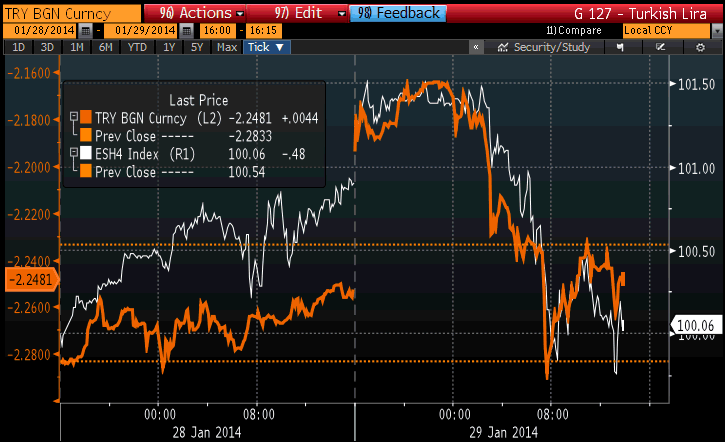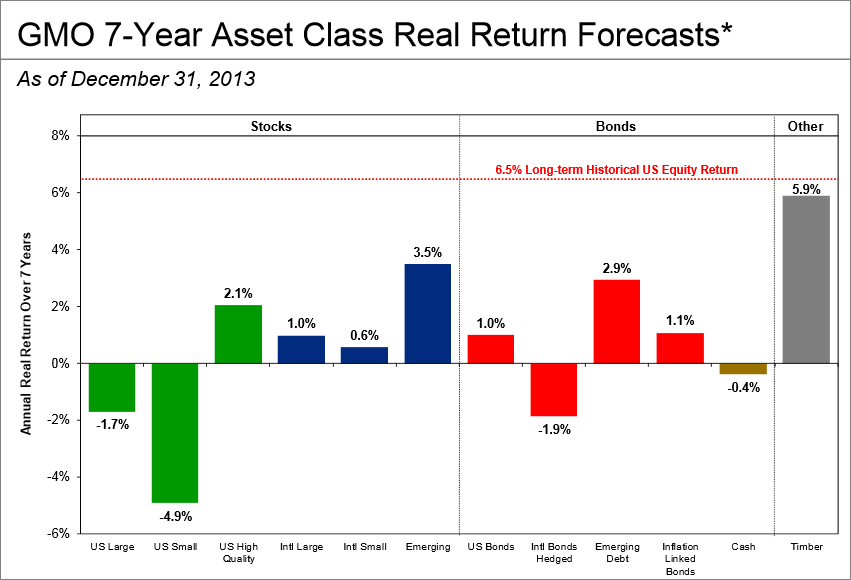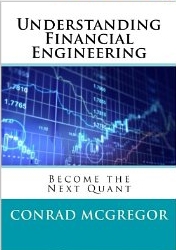I have been told that China is slowing down. I have been told that with the US Fed tapering, some money is being drained out of the Emerging Markets and going to the United States. I have been told that the Emerging Markets will have reduced competitiveness that will benefit the United States.
I have no idea how any of this will end, but I can tell you factually that the S&P 500 has been very correlated to the performance of emerging market stocks and debt in the last few weeks. In particular, take a look at the rate action instigated by Turkey and its impact on the Lira along with its impact on the S&P 500. I would say they were pretty tightly correlated:
 My guess is that the S&P 500 will find stability when the emerging markets find stability. My guess is that stability will not be found for a few months and could provide an interesting market environment. I will let the others pontificate on what will happen and spend my time analyzing what is actually happening.
My guess is that the S&P 500 will find stability when the emerging markets find stability. My guess is that stability will not be found for a few months and could provide an interesting market environment. I will let the others pontificate on what will happen and spend my time analyzing what is actually happening.








